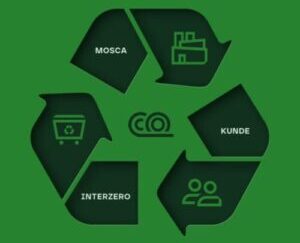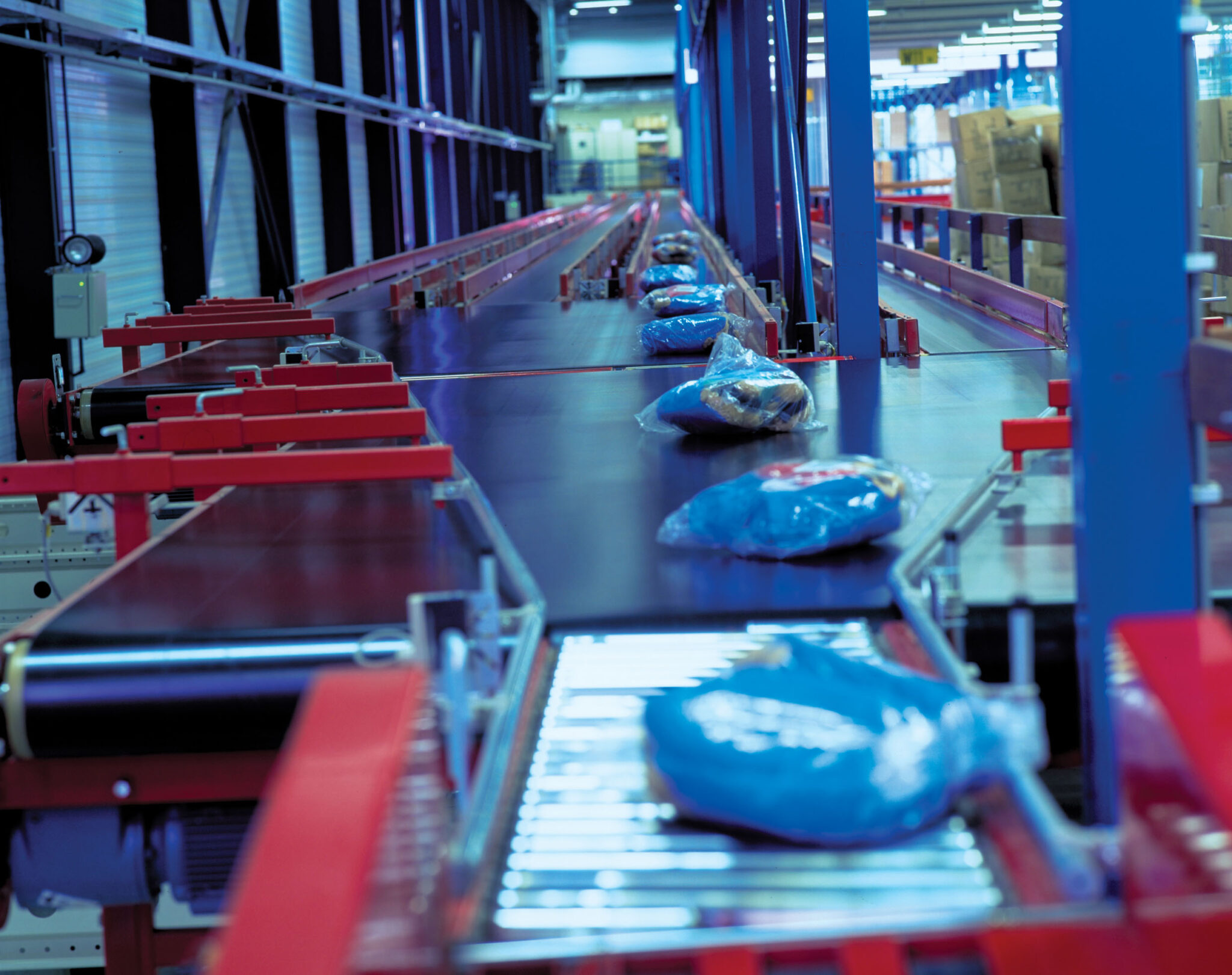PET and PP strapping raw materials can be recycled effectively as part of a circular economy. Mosca GmbH relies on Interzero’s efficient recycling of PET and PP strapping to minimize the need for new material in their strapping production. In the future, the company based in Waldbrunn will track the status of recycled source materials using the material account of the experts for closed-loop solutions and plastics recycling.
At first glance, the lifespan of packaging materials may appear to be brief: after being used, they are disposed of and replaced with new ones. As the sustainable use of commodities becomes more important, recycling is gaining in popularity. Reprocessed cardboard, paper, and other materials remain in the value chain. This also applies for strapping: its base materials – mainly PET and PP – are highly recyclable. As a manufacturer of strapping for packaging safety, Mosca relies on recycled materials as well. The share of recyclate in Mosca’s PP strapping ranges from 30 to 100 percent, depending on the strapping size. Mosca’s PET strapping is made entirely from recycled materials. “As a company that operates sustainably, we prioritize the responsible use of primary resources and the systematic recycling of PET and PP materials,” emphasizes Simone Mosca, Managing Director of Mosca GmbH. This does not only make the company less dependent on volatile commodity markets but also enables controlled production of vital strapping in high quality.
Flexible, robust, and sustainable
Since fall 2023 Mosca has been collaborating with Interzero, a partner specializing in innovative circular solutions and effective plastics recycling, to reach these targets. “Sustainable action thrives on robust partnerships across the value chain, supporting us in implementing an effective circular economy,” says Ann Mertens, Sustainability Officer at Mosca. In addition to recycling, Interzero is responsible for Mosca’s upstream and downstream logistics in the long term: the company will collect used strapping from end customers and return the shredded or recycled material to the Waldbrunn-based company. Transparency regarding the recycling process and the available quantities of PET and PP are crucial for Mosca. “Through our material account, we provide our partners with a digital twin of their raw materials and circular management. This tool enables them to track the status of recycled materials at any time, strategically secure access to raw materials, and thereby close the loop,” emphasizes Britta von Selchow, Head of Sales Circular Solutions at Interzero.
Circular economy
The material account tracks the amount of PET and PP that has been collected for recycling, is currently undergoing recycling, or is available for reuse. Just like a bank account, the digital platform shows the amount of ‘credit’ Mosca has available for producing new strapping but measured in tons of material rather than euros. “This allows us to precisely control our strapping production while maintaining access to vital raw materials – in line with our tagline of ‘Nonstop Performance,’” emphasizes Simone Mosca.
Transparent communication
Finally, the continuous recording of circular economy data supports seamless sustainability and financial reporting. “Thanks to the platform, we do not only know the current status of our PET and PP but also the share we have recycled each year – and thus create an important basis for transparent sustainability communication,” concludes Simone Mosca.
read more
Huge Delivery of Plastic Pallets Helps Automate Pet Food Maker



